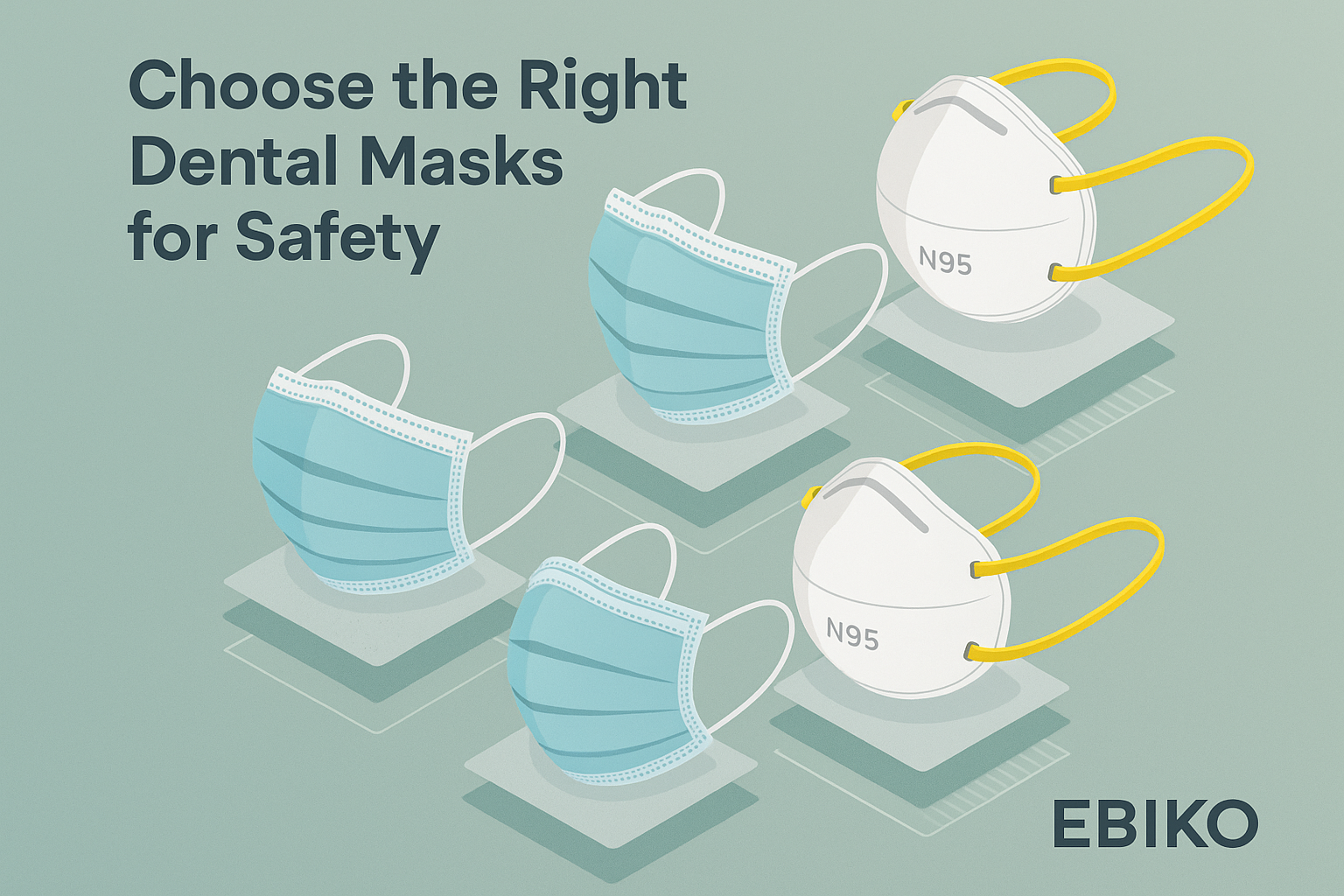Essential Guide to Choosing Dental Masks for Professionals
Understanding the Importance of Dental Masks

Dental masks serve a critical role in maintaining a safe environment for both dental professionals and patients. They provide a barrier against airborne pathogens, splashes, and other contaminants present in clinical settings. During procedures involving aerosols or close contact, masks act as the first line of defence for healthcare providers. As a dentist in Toronto, where public health compliance is subject to provincial standards, ensuring your practice adheres to the highest safety protocols starts with proper mask selection.
The Canadian Dental Association (CDA) strongly recommends using masks that meet or exceed ASTM or CSA classifications to support infection control. In busy urban environments like the GTA, clinics often treat a high volume of patients; therefore, mask selection impacts both staff performance and overall infection mitigation.
Types of Dental Masks

Dental masks come in various forms, each designed for different levels of risk and exposure. Knowing when to use each type is vital for operational safety and compliance:
- Surgical Masks: These offer essential protection during non-aerosol producing treatments such as routine examinations and cleanings. They generally feature multiple plies and provide basic filtration against larger particles like saliva droplets.
- N95 Respirators: Ideal for aerosol-generating procedures such as ultrasonic scaling, air polishing, or high-speed drilling. These respirators are certified by NIOSH and must be properly fitted to the wearer. Under Canadian Occupational Health and Safety standards, fit testing is mandatory for reuse protocols or extended wear.
- Face Shields (Adjunct PPE): Though not a substitute for masks, face shields are used alongside facial masks to provide an added layer of splash protection. They are especially useful during high-speed handpiece procedures and impressions involving high fluid contact.
Differentiating between masks designed for fluids versus particulate protection ensures that clinics provide optimal respirator or surgical selection based on patient risk assessments.
Key Factors to Consider

When choosing dental masks for your practice, careful consideration of product specifications ensures protection, workflow efficiency, and wearer satisfaction. Here are the most important factors:
- Filtration Efficiency: For clinical environments, ASTM levels serve as benchmarks—Level 1 for low-risk, Level 2 for moderate aerosol exposure, and Level 3 for high aerosol or fluid procedures. Choose dental masks tested to meet these standards for filtration and bacterial accuracy.
- Fit and Comfort: Prolonged wear can cause discomfort if the mask doesn’t fit properly. Masks that contour to the bridge of the nose and feature mouldable strips and secure ear loops or headbands reduce slippage. EBIKO provides masks with ergonomic design features for all-day wearability.
- Breathability: Particularly important for procedures exceeding 30 minutes. A mask should not compromise oxygen flow or cause fogging in eyewear. Multi-layer fabric construction with micro-pore technology allows for airflow while maintaining integrity.
- Fluid Resistance: Dental procedures frequently involve spraying, irrigation, and saliva exposure. Look for masks tested under synthetic blood pressures (ASTM standard) to provide reassurance in fluid-heavy surgeries.
In the context of Ontario healthcare facilities, adherence to IPAC (Infection Prevention and Control) guidelines underscores the need for CSA / ASTM-labelled dental mask products.
Recommended Products from EBIKO

EBIKO Dental offers a curated line of dental mask products that combine clinical-grade safety with unmatched comfort. These are well-suited for practitioners in Toronto and throughout the GTA. One of the top features of EBIKO Dental Masks is their fluid-resistant triple-layer filtration system, offering ASTM Level 2 and Level 3 protection.
These masks also include anti-fog nosebands and ultralight breathability features—a perfect solution for dental hygienists and general dentists performing complex procedures. Dentists looking for locally available, compliant PPE should consider stocking these to meet the expectations of Ontario’s health unit audits.
EBIKO’s line also supports bulk purchasing for clinics, ensuring ongoing supply and cost-effectiveness. Plus, their Canadian-based fulfillment ensures efficient delivery across the GTA, including Mississauga, Markham, Scarborough, and downtown Toronto practices.
Conclusion

In the demanding and regulated landscape of Canadian dental care, especially in metropolitan areas like Toronto, selecting the right dental masks is more than a logistical decision—it reflects a clinic’s commitment to safety, compliance, and patient trust.
By understanding the mask types, evaluating based on key attributes such as breathability and fluid resistance, and selecting proven suppliers like EBIKO, dental professionals can ensure a safe clinical environment. Updated PPE policies and proper mask usage will reflect in staff confidence, patient satisfaction, and audit-readiness.
Whether setting up a new clinic or updating supplies, prioritize dental mask options that are tested, certified, and designed with the practitioner in mind.

